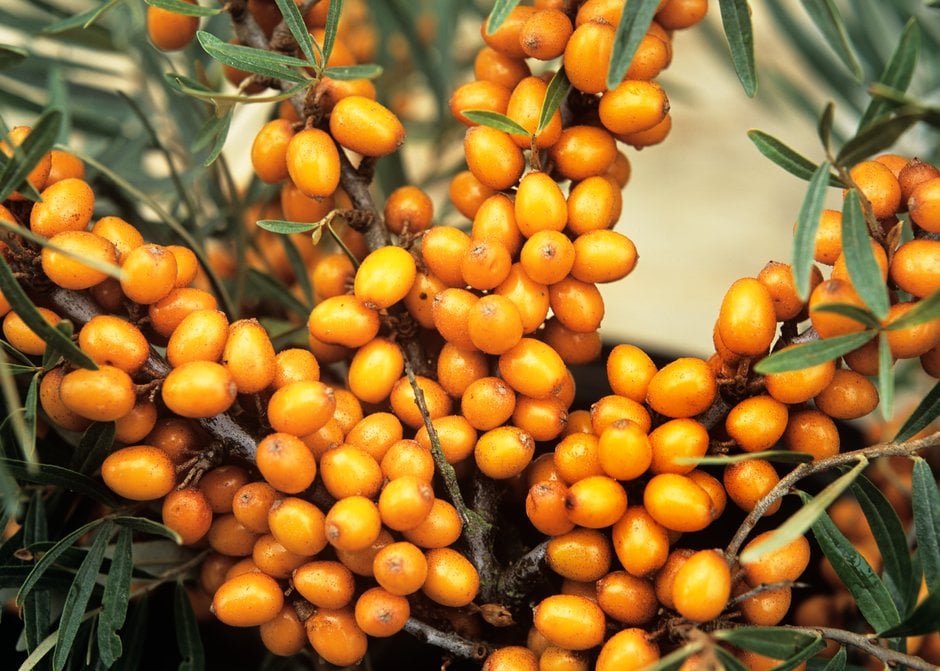Size
Ultimate height
4–8 metresTime to ultimate height
20–50 yearsUltimate spread
4–8 metresGrowing conditions
Moisture
Moist but well–drained, Well–drainedpH
Alkaline, NeutralColour & scent
| Stem | Flower | Foliage | Fruit | |
| Spring | Yellow | Grey Silver | ||
|---|---|---|---|---|
| Summer | Grey Silver | Orange | ||
| Autumn | Grey Silver | Orange | ||
| Winter | Orange |
Position
- Full sun
Aspect
South–facing or North–facing or West–facing or East–facing
Exposure
Exposed or Sheltered Hardiness
H7Botanical details
- Family
- Elaeagnaceae
- Native to GB / Ireland
- No
- Foliage
- Deciduous
- Habit
- Bushy
- Genus
Hippophae are deciduous shrubs or small trees, with narrow, silvery leaves and inconspicuous flowers followed on female plants by orange fruits; both male and female plants must be grown for a good crop of berries
- Name status
Accepted
How to grow
Cultivation
This plant is listed on Schedule 9 of the UK Wildlife & Countryside Act as an invasive non-native species. Although not banned from sale, it is an offence to plant or cause these to grow in the wild IN NORTHERN ISLAND AND THE REPUBLIC OF IRELAND. Gardeners possessing them should undertake measures to control them. See RHS advice on invasive non-native species for further information
Propagation
Please see cultivation notes
Pests
Generally pest-free
Diseases
May be susceptible to honey fungus in gardens where it is present but insufficient data to determine degree of susceptibility
Get involved
The RHS is the UK’s gardening charity, helping people and plants to grow - nurturing a healthier, happier world, one person and one plant at a time.
